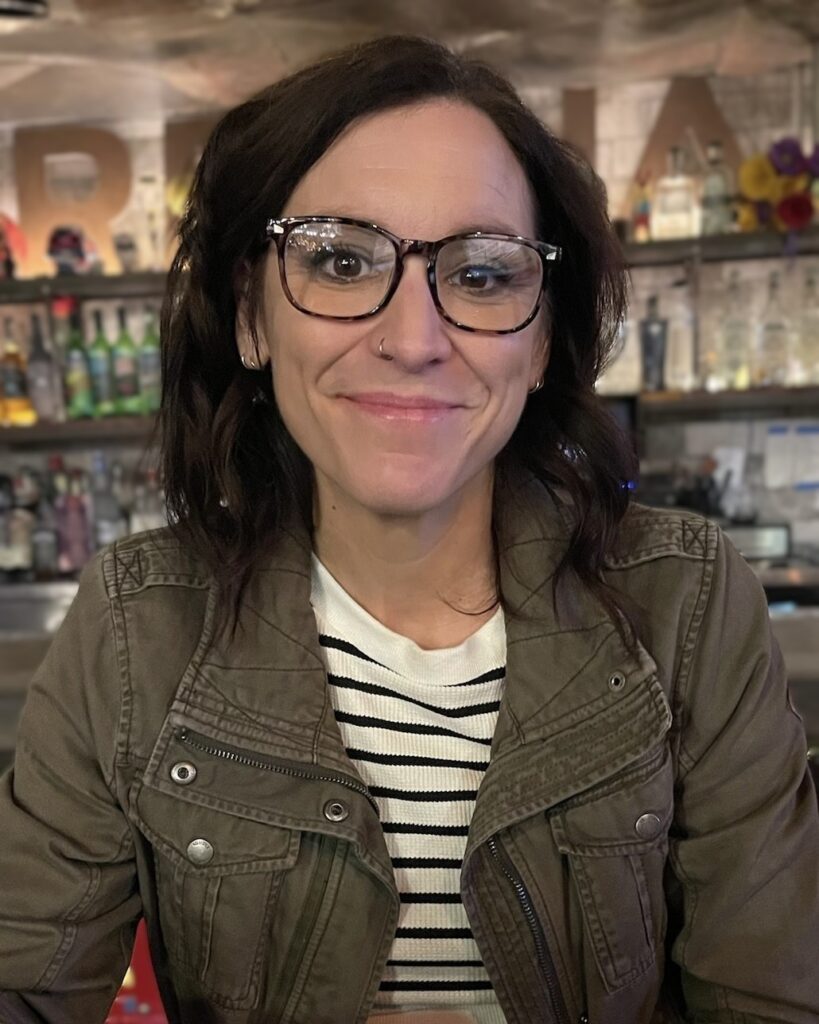Rick Henry
Crawlspace
rick henry
Crawlspace
It was Baptistine who made the discovery. He began to spend more and more time hunched over a tiny crack where the floor joined the outside wall. He hunkered, perfectly still but for the tiniest flicker at the end of his tail and the occasional quiver of whisker. Then we, too, heard the scratchings under the outside wall that was next to the door we never used. At first, we thought it was a mouse and we paused—and waited for it to come inside. Then we grew impatient and went about our business. Baptistine remained over the crack.
The scratchings increased. They moved under the floor to the middle of the room. Baptistine followed, oblivious to our passing feet, whiskers forward, intent over the noise. That night, the scratchings turned to sighs. We lay awake, looked at each other in the dark, and hypothesized: woodchuck, gopher, raccoon.
In the morning we heard humming and a scraping—a shovel against dirt. The house is haunted, we thought as we ate our breakfast in silence, straining at every sound. Baptistine sat, unperturbed, in the middle of the kitchen floor.
We walked the perimeter of the house in search of something unusual, some tell-tale sign, something odd about the foundation. We inspected the crack with a flashlight and screwdriver. We opened the door we never opened. We didn’t speak, afraid of being overheard, afraid of not hearing the sound from under the floor.
Night fell. Baptistine was missing. We thought about the door we never opened as we searched the house, the yard. We thought about the flashlight, the screwdriver. We thought about foundations as we called and called and called. Baptistine, we called, our voices modulating, nearly singing our distress. Baptistine, Baptistine, Baptistine!
We finally found him under the bed. His eyes were wide and caught the glint from the light before we turned it off. Again, we did not sleep, kept awake by our endless hypothesizing over the sizzle, the chewing, the burp.
In the morning, Baptistine was gone. We called. The doors and windows were closed. We called. We looked under the bed—dust. We modulated. He had disappeared. Our eyes grew wide, we could see how wide in the mirror. We had bags from lack of sleep. Our hair, despite the comb, flew out in all directions.
We had to use the bathroom. There, the pipes were rattling, and we could hear whistling. We thought about the crawlspace, about it lying under the toilet. We went outside to hide in the bushes.
We wandered from room to room, following the noises under our feet. We wandered from room to room, the noises following our every step. We sat in the kitchen and heard squeaks. In the bedroom we heard grunts and sighs. In the dining room the humming persisted. We thought about getting a new cat.
That night, the noises came from the bedroom. We slept in the living room on sleeping bags. We ate in the bedroom, cooked in the dining room, and avoided the bathroom altogether. We prowled about the house on all fours, catching light naps in the beams of sunlight and over the heat ducts. Thumps. Wails. Rumbles. We stopped cooking, eating raw whatever we found in the refrigerator. Outside, we sought a new set of bushes.
Suddenly silence—except for sounds of shuffling and skittering from under the floor.
Then cacophony—the beams in the attic creaked, the refrigerator clicked on and then off, and the faucet dripped in the sink. The floor fairly roared. We followed these sounds with our eyes as we huddled in a corner. We heard the scratchings from the crack near the door we never opened and sat next to it, waiting. A mouse appeared. We chased it around the room. It escaped under the sofa.
We slept during the day and sat up all night. We piled all the furniture into one corner of the living room and unplugged the refrigerator. The noises under the floor continued, but we grew used to them, barely noticing the shifts from one room to another. We killed the bushes with the small holes we dug.
A sudden and second silence—
For three days we were still, listening, pressing our ears to the floor. Creaks, clicks, and drips faded away. We stationed ourselves in the bathroom. Nothing. In the kitchen. Nothing. The living room, the dining room, the bedroom, the same. The house was quiet, except for the distant hum of electricity. We looked at each other with dilated pupils, asked questions with tilted heads. We slept, cornered by sunbeams, our ears strained and twitching, ready to awaken us.
Then, unexpectedly, a crash and howl. We followed the racket, stalking it to one of the return air ducts. We pried off the grate and waited. The yowling fairly exploded from the hole, reverberating in our faces, setting our whiskers a-twitching. A head appeared—Baptistine’s—and with it the howls ceased. He leapt from the duct, fatter, rounder, and padded across the floor to a vacant bit of sun where he took a bath that cleared the cobwebs from his fur and lay down to sleep. We leaned into the wall and watched the sun slip across the floor. The beams in the attic creaked. The faucet dripped. If we listened very carefully, we could hear the ever-so-faint sound of purring.
Rick Henry’s recent publications are the novella, Colleen’s Count, and the epistolary novel, Letters (1855), both set in the fictional town of Homer, NY. His other books include, among others, Snow Fleas (a reverie); Then (54 text blocks). He is currently making little progress on a dozen or more other projects. Find him at www.rickhenry.net.



